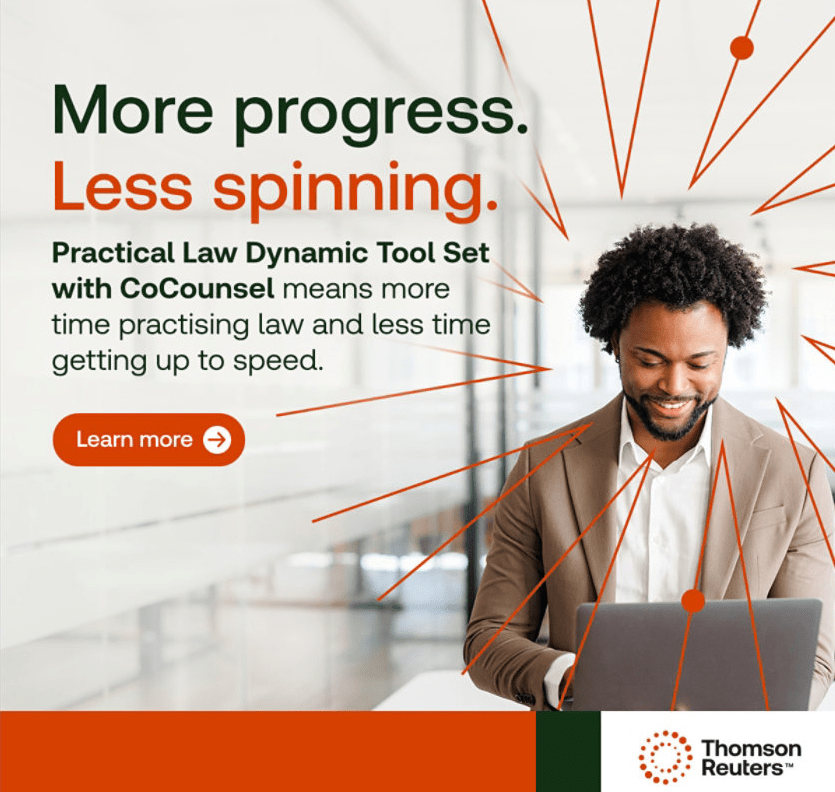In-house lawyers face a number of unique challenges that set them apart from lawyers in private practice. For example, while private firm lawyers often work with one or two clients at a time over the course of a day, in-house attorneys must juggle numerous clients and their competing priorities, respond immediately to different stakeholders across the company, and balance the role of legal advisor against that of being a “business partner.”
This can all become challenging and overwhelming at times, leading to “burnout” – a problem that has become more prevalent as in-house counsel workloads increase, expectations rise, and boundaries between personal and professional lives blur thanks to 24/7 connectivity. And it’s a serious issue. Burnout costs businesses around $190 billion a year. Moreover, we are even seeing a migration of in-house lawyers back to law firms, something unthinkable just ten years ago. Fortunately, burnout is a topic that is starting to receive the attention it deserves, especially in the legal field where, historically, mental health has been overlooked or seen as a sign of weakness. It’s not.
Below we will explore the causes, impacts, and remedies for burnout, including strategies that both individual in-house lawyers and the legal department can implement to foster a healthier (and more productive) work environment.
Jump to ↓
| What is burnout? |
| How does burnout impact in-house lawyers? |
| What are the signs of burnout? |
| What do we do? |
| How can the legal department change to mitigate burnout? |
What is burnout?
Burnout is more than just being tired after a long day at the office – it is a perpetual state of physical, emotional, and mental exhaustion caused by prolonged stress and overwork. It is characterized by a number of factors, including a sense of detachment from one’s work, a reduced sense of accomplishment, and fatigue that simply doesn’t go away, no matter how much you sleep.
For in-house lawyers, burnout is usually exacerbated by the following: high workloads, the need for constant availability, and the somewhat Faustian expectation to be proactive partners in driving business success while also mitigating legal risk. Adding to the pile is the fact that most in-house legal teams often contend with a lack of resources—operating with fewer personnel and tools than their law firm counterparts, leading to a lack of budget to get help, chronic understaffing, and increased stress.
How does burnout impact in-house lawyers?
Burnout takes a huge toll on personal well-being. It can manifest as chronic fatigue, sleep disturbances, irritability, anxiety, and depression. These symptoms not only impact work performance but also (further) strain personal relationships at home and hinder the ability to maintain a semblance of a balanced life. Burnout diminishes productivity at work, i.e., a burnt-out lawyer is more likely to make mistakes, struggle with creative problem-solving (including doubting their ability to solve problems), and be less effective in negotiations and advising. The cognitive and emotional demands of the job require a sharp and focused mind, which burnout directly undermines.
Lastly, burnout does not just affect individual lawyers, it impacts entire teams and organizations. When lawyers leave the department due to burnout, it is almost always a regrettable departure and one that creates a loss of institutional knowledge and big gaps in manpower, putting more strain on those who remain, creating a “Groundhog’s Day” cycle of overwork and stress. This can lead to a deterioration in overall morale and reduced efficiency across the team, as exhausted lawyers and other professionals and staff simply cannot perform at their best when they are struggling so hard just to keep their heads above water (if even that). If not fixed quickly, they leave the department.
What are the signs of burnout?
Burnout is often not immediately apparent—it creeps up slowly over time like a ninja. It is important to identify the signs of burnout not only for one’s self but also, if you are a manager, for the people that work for you. Early signs include feeling physically exhausted despite getting enough sleep, losing enthusiasm for work, struggling to stay focused, and a growing detachment from colleagues or tasks that once were enjoyable. Behavioral changes are common as well, such as increased absenteeism, irritability, or consistently missing deadlines. These are all indicators of burnout. Decreased job satisfaction or a sense of “dread” on Sunday nights may also signal issues with burnout and work-life balance and well-being.
What do we do?
To start, building a supportive work environment is crucial in tackling burnout. This means regular check-ins with team members, engagement surveys, and other efforts to encourage people to speak up about how they are feeling. Legal departments should encourage open conversations about mental health within the team. Employees should feel comfortable discussing stress without fearing negative career repercussions. This can help normalize the experience of burnout and make it easier to seek help at the early stages of burnout vs. waiting until it is too late. Flexible work arrangements, such as remote work or flexible hours, can also provide balance to the job. Department leaders recognizing that everyone works differently and placing value on outcomes over “being at your desk” simply for the sake of “being around” can also help alleviate stress.
Workload management is critical. In-house lawyers often deal with “everything is urgent” syndrome. Learning how to prioritize and properly delegate can make a significant difference. Leaders of the department can help with setting clear expectations with business partners about which projects are critical, and which can wait. Avoiding false deadlines can help, in particular getting out of the business of self-inflicted deadlines and letting the business tell you when something is needed vs. volunteering a short deadline on your own. Leveraging technology, e.g., generative AI and automation tools to streamline routine tasks, such as document review or contract generation, can lighten the load. In short, work-life balance is not a “luxury” but a necessity for the long-term success of any in-house lawyer or modern legal department as a whole.
In-house lawyers should be encouraged to draw lines and set clear boundaries between work and personal life. This means shutting off work devices during weekends, not checking emails late at night, and being intentional about taking breaks and using vacation days (and not working while on vacation). It can be as simple as a policy of no unnecessary emails over the weekend. Encouraging the in-house team to truly disconnect at key times can help them recharge, leading to improved mental health and higher-quality work.
Additionally, finding tools to build up personal resilience helps combat burnout. Regular exercise, good nutrition, and maintaining a healthy sleep schedule are simple but effective tools for managing stress. Organizing a group walk during lunch is an easy way to start. Techniques like mindfulness and meditation can also help and, budget permitting, fronting the cost of classes can be an excellent use of department dollars (or taking advantage of free resources provided by the company). Lastly, ensuring everyone in the department is supportive of everyone else, and on the lookout for signs of burnout, is an easy way to head off serious problems before they become big issues.
How can the legal department change to mitigate burnout?
Preventing burnout requires a shift in attitudes and culture, starting with the general counsel. In particular, understanding that wellness drives productivity and the best work product, while reducing turnover. Three crucial goals of every legal department. Simply put, employees who rest well are more creative, efficient, and capable of navigating complex issues. Employee wellness programs, where everyone participates – from the general counsel on down – and which include mental health support, counseling, and stress management resources, can help dramatically reduce burnout. Employees tend to emulate the behaviors of their bosses and leaders.
Consequently, senior in-house lawyers and general counsel must actively model the behaviors they wish to see in their teams, such as taking time off, not sending emails late at night (e.g., using the delay send feature in your email if you are working late or on the weekend), and being transparent about their own need for work-life balance is critical. This type of leadership helps break the cultural taboo around mental health and work-life boundaries, i.e., showing that it is not only acceptable but lawyers are encouraged to prioritize well-being.
Here are just a few resources to pass along to everyone in the legal department:
- Eight Ways to Manage Your Mental Health as In-House Counsel (ACC Docket).
- The American Bar Association Directory of Lawyer Assistance Programs (a comprehensive list of programs across the country).
- The Legal Burnout Solution (mindfulness-based CLEs, articles, training, individual coaching, and meditation classes designed specifically for lawyers).
- Eight Ways to Manage Your Mental Health as In-House Counsel (ACC Docket).
- The Burnout Fix: Overcome Overwhelm, Beat Busy, and Sustain Success in the New World of Work (book)
- COLAP Cafe (a blog from the ABA Commission on lawyer assistance programs)
- Ten Things: How In-House Lawyers Can Reduce Stress (in an Overy Stressful Job)
Finally, and budget permitting, another strategy to prevent burnout is making effective use of outside counsel to help manage workload. In-house teams can benefit from strategically outsourcing certain types of work, especially if they can find low-cost solo practitioners or Alternative Legal Service Providers who can act as an extension of the legal team when needed. And, of course, the general counsel setting realistic expectations with internal stakeholders regarding the capacity of the in-house team with the resources it has, i.e., if you want more you have to provide more resources.
Burnout is a real challenge for in-house lawyers, but it is not insurmountable. Addressing it requires a concerted effort—both from individuals taking care of their own mental health and from legal departments committing to changes that support their employees. Building supportive environments, encouraging work-life balance, leveraging external resources, and leading by example, general counsel and other department leaders can create legal departments where lawyers can thrive.
The long-term benefits of healthy, engaged, and energized teams are undeniable. Lawyers who feel supported are more innovative, effective, and committed, which ultimately leads to better business outcomes. If you have access to Practical Law, there are thousands of resources available to help in-house lawyers solve problems quickly and manage their matters and outside counsel more effectively.

Practical Law Dynamic Tool Set with CoCounsel
Enhance your daily work with time-saving tools and resources
Browse features ↗










